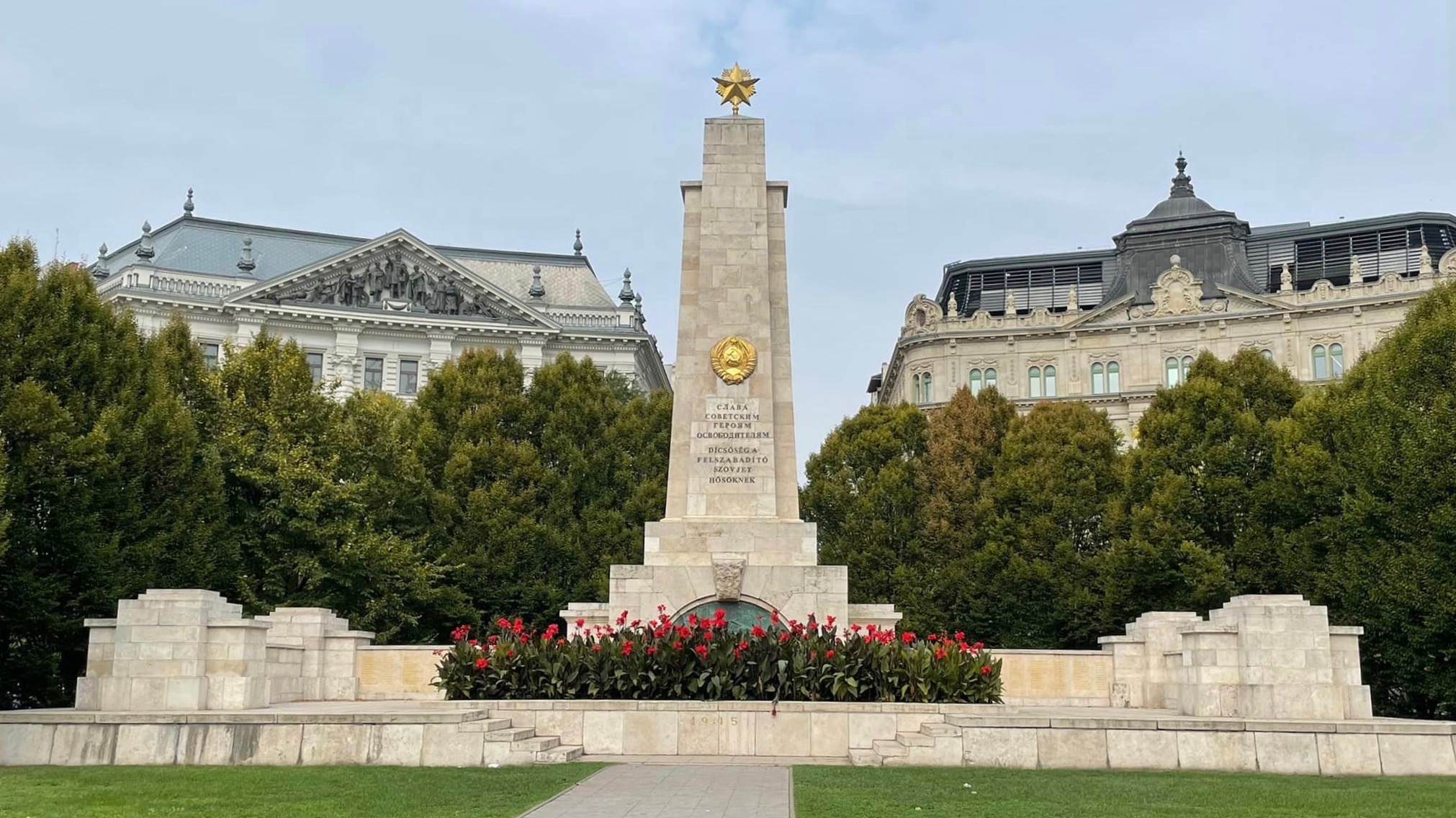Leftist parties in Europe have slammed the rampant attempts at decommunization and attacks on communists and their symbols in several Eastern European countries. On Tuesday, October 25, the European Left party in Hungary denounced the motion submitted in the parliament by the far-right Jobbik party which calls for the removal of the Soviet Red Army Monument from the Liberty Square in Budapest. On October 23, communist sections in Serbia, including the New Communist Party of Yugoslavia (NKPJ) and the Union of Communist Youth of Yugoslavia (SKOJ), protested the repeated vandalization of the Tomb of People’s Heroes by right-wing fringe groups as well as the attack on the NKPJ office in Belgrade last week.
The rise of the far-right and the ongoing Russia-NATO war in Ukraine has led to a spike in Russophobia and anti-communism across Europe, especially in East European countries. Right-wing governments, especially Poland and Ukraine, had initiated a process of decommunization long ago and already destroyed numerous Red Army memorials and Soviet monuments from the Cold War period. In several countries, communist publications have been censored, communist parties are banned and their members are facing persecution. Baltic states, including Latvia, Lithuania and Estonia, have already banned communist parties and initiated a project for decommunization. In the Balkan countries, communist memorials and partisan memorial cemeteries are being subjected to repeated vandalization by neo-Nazi groups.
The European Parliament had passed a controversial resolution in September 2019 calling for the erasure of all memorials of “totalitarianism” across Europe, including memorials dedicated to the Red Army. Attacks on Soviet memorials are also taking place in the Czech Republic, Germany, and other European states. With the onset of the Russian military action in Ukraine, several European countries, including Moldova, have called for a ban on the public display of Soviet and Russian symbols.
Watch: Protest in Belgrade against the vandalization of the Tomb of National Heroes
On September 29, Members of European Parliament (MEPs) from the Communist Party of Greece (KKE), Kostas Papadakis and Lefteris Nikolau-Alavanos, met with UNESCO executives in Paris and registered an official complaint over the vandalization and demolition of anti-fascist and Soviet cultural monuments in various European countries. The communist MEPs demanded urgent measures to protect the monuments and end the destructive actions by governments, regional and local administrations, and far-right groups. They also stressed the need to bring all those responsible for their destruction to justice and to end any persecution of those who stood up to protect the monuments.
Regarding the decommunization process in Poland, Bartosz Bieszczad from the Polish Communist Party (KPP) told Peoples Dispatch on October 26, “anti-communist hysteria is in full swing in Poland. In March 2022, the “Institute of National Memory” called for the complete removal of all place names and symbols commemorating socialism and the liberation of Poland in 1945. This is accompanied by mass falsification of history regarding WWII and the Polish People’s Republic. In some places, like Olsztyn, locals are defending their historical monuments. In most, however, the perpetrators can act with impunity. The objectives of these actions are not only to slander the superior socio-economic system, but also to fuel hatred against Russians and condition Polish people into being willing cannon fodder for NATO.”
On October 25, the European Left party of Hungary stated in its publication amiidonk that the “Jobbik party chairman’s proposal to demolish Soviet Red Army Monument in Budapest’s Liberty Square is distasteful and, moreover, they are in line with the views of the anti-communist Fidesz party which would have demolished the monument long ago if it were not for interstate treaties and diplomatic interests prohibiting it. The monument dedicated to the Soviet Red Army erected in 1946 has nothing to do with the tragic events of 1956 in Budapest, nor with the current fascist policy of Viktor Orban’s government, nor with the Russia-Ukraine war.”
On October 23, the secretariat of the Union of Communist Youth of Yugoslavia (SKOJ) said in a statement, “for the last four years, the Tomb of the People’s Heroes has been under constant attacks by fascists and neo-Nazis, and unfortunately only one perpetrator (Robert Rundo) of these mindless, vile attacks has been found and prosecuted to this day.”
SKOJ criticized the authorities for not responding to public demands to protect such tombs and other monuments from vandalization.





